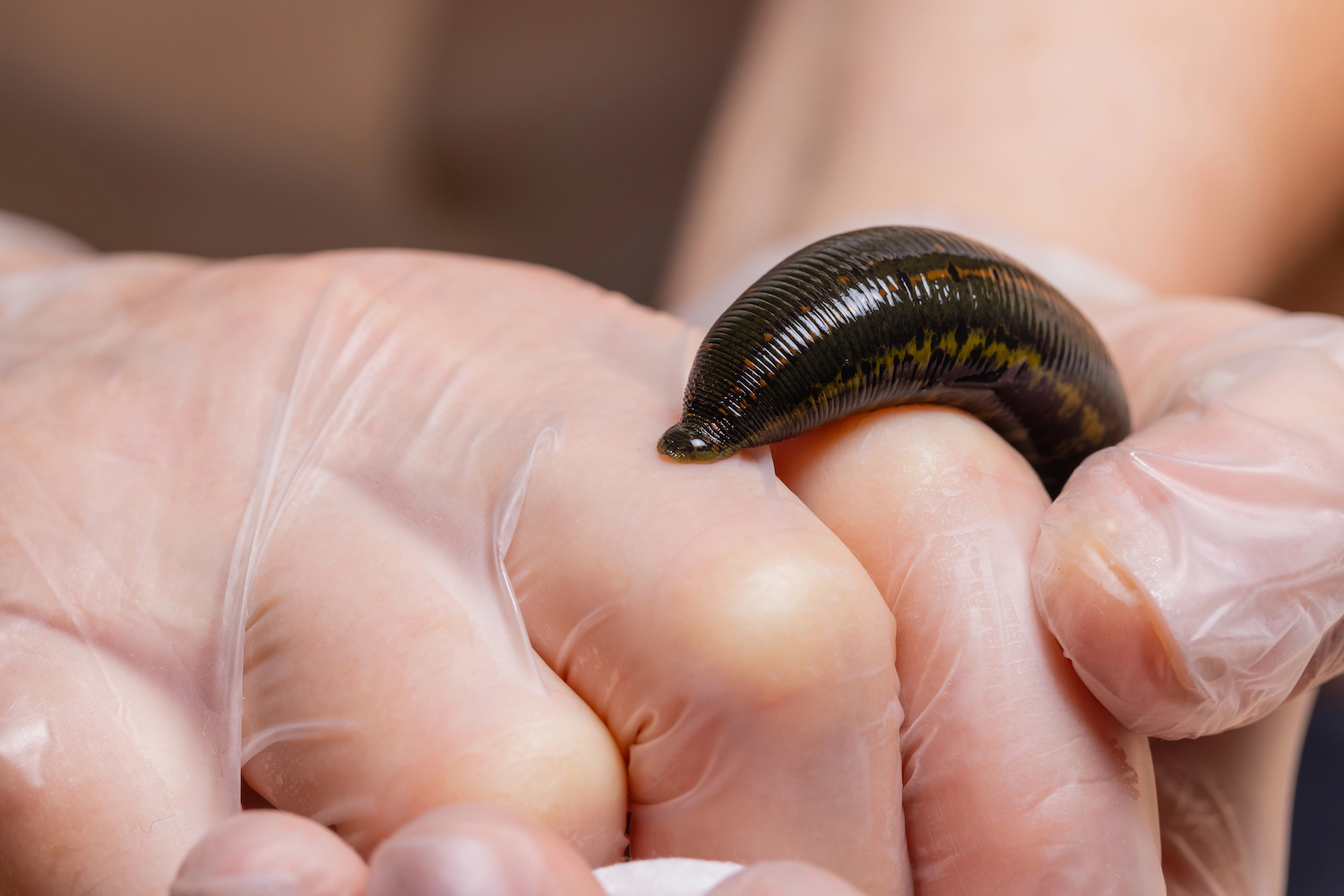Leeches have been used in natural medicine for centuries to treat various ailments. Scientific studies have confirmed the effectiveness of leech therapy in treating diseases such as atherosclerosis, hypertension, and varicose veins. Due to the richness of hirudin compounds with a broad spectrum of action, there are indications for using leech therapy in the case of typically female diseases. Check out which diseases leeches can help with.
Female diseases, otherwise known as gynaecological diseases related to the reproductive system, remain a taboo subject. Upon the appearance of the first alarming symptoms, women often neglect them, waiting for the problem to go away on its own. Some are even embarrassed to seek help from a specialist. Meanwhile, intermenstrual spotting, discharges, severe lower abdominal pain, or itching and burning in the genital areas may indicate an ongoing disease in the body and require consultation with a doctor.
Female diseases – what you should know?
Gynecological diseases, as the name suggests, exclusively affect women. Due to their unusual anatomical structure and the internal termination of the urinary-genital tracts, the small pelvis’s organs and tissues are particularly prone to infections of various origins. All infections result from the penetration of pathogenic microorganisms into the body. Bacterial or fungal infections can and should be treated. Neglecting them can lead to the spread of microorganisms and the development of serious diseases.
What are the typical female diseases?
Typical female diseases include, among others:
- urethritis,
- vaginitis,
- cystitis,
- salpingitis and oophoritis,
- parametritis,
- adnexitis,
- cervical erosions,
- ovarian cysts,
- abscesses,
- discharges,
- amenorrhea,
- menstrual cycle disorders,
- menstrual pains,
- excessive bleeding,
- uterine prolapse,
- subcutaneous adhesions,
- infertility,
- inflammatory urinary incontinence,
- painful urination.
When to schedule a doctor’s appointment?
Although alarming symptoms do not always indicate a severe disease, they should always be consulted with a specialist in every case. The question arises: what symptoms should be considered unusual and raise our alertness? Indications for scheduling a gynaecologist appointment include:
- Constant or persistent pain – pain can occur in the genital organs, lower abdomen, or even the sacral spine region. It can be felt all the time or, for example, only during sexual intercourse. If the pain is constant, chronic, or intensifying, it must be consulted with a doctor without fail;
- Itching and burning in the genital areas – symptoms appear around the labia, vaginal opening, or urethra. They occur all the time and may intensify during urination or sexual intercourse. Usually, these are symptoms of a fungal infection, but they can also indicate other diseases;
- Discharges – during infections, vaginal discharge may change colour and consistency, accompanied by a characteristic, unpleasant odour. Along with discharges, pain, itching, burning, or bleeding often occur. If in doubt that something is wrong with the discharge, schedule an appointment with a gynaecologist;
- Intermenstrual bleeding – may be a symptom of infections or neoplastic changes. Every case of bleeding or spotting occurring between menstrual phases or after menopause should be consulted with a doctor;
- Bladder problems – symptoms such as burning, pain, frequent urination, or an inability to urinate despite the urge usually indicate a urinary tract infection or cystitis. A doctor’s visit is necessary if symptoms persist for 2-3 days and do not subside despite home treatment methods.
Treating female diseases with leeches
Specialists in leech therapy point to the effectiveness of applying leeches in treating female diseases. Leech therapy can support the fight against inflammatory conditions of the vagina, ovarian and fallopian tube abscesses, ovarian cysticity, and cervical erosions.
Upon attaching to the skin, leeches inject hirudin compounds into the bloodstream, improving blood circulation and patency. They eliminate inflammation, accelerating and facilitating their treatment. The anti-inflammatory action of substances derived from leeches is due to the presence of bdellin A and acrosin inhibitors, which play a significant role in the development of all inflammatory processes.
Regularly undergoing leech therapy brings positive results in treating menstrual disorders. This is likely due to the beneficial impact of hormones such as progesterone, cortisol, or testosterone secreted by leeches on the body.
What diseases can leeches help with?
Here are three diseases where leech therapy can be beneficial:
- Fibroids – leeches regulate the level of female sex hormones, additionally eliminating venous stasis occurring in reproductive organs;
- Ovarian cysts – applying leeches can contribute to the reduction or absorption of cysts, making surgical intervention unnecessary;
- Endometriosis – Leech therapy stimulates immunity and endocrinological processes (normalizes hormone levels). Pain-relieving substances from leeches alleviate pain. Anti-inflammatory hirudin compounds restore microcirculation in tissues and eliminate the causes of hypoxia.
Treatment using leeches involves applying them to the lower abdomen and pelvis, especially to the pubic and coccygeal bones, the vaginal vault, around the kidneys and ovaries, or the anal area.

